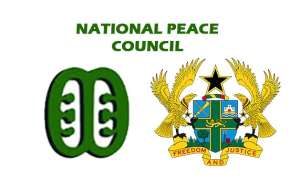
The STAR-Ghana Foundation has called for inclusive representation in public governance, emphasizing the need to meet the minimum threshold of 30% women’s representation.
The organization highlighted the importance of integrating women and youth into peacebuilding efforts to enhance effectiveness and inclusivity.
“Integrating women and youth into the regional peace architecture will enhance the effectiveness in fostering more inclusive peacebuilding efforts,” the Foundation stated.
In a press release signed by Eunice Racheal Agbenyadzi, Head of Programmes at STAR-Ghana Foundation, the organization underscored the importance of the ongoing efforts by the National Peace Council (NPC) to constitute Regional Peace Councils (RPCs) across the country. According to the statement, this process provides a valuable opportunity for the government to demonstrate its commitment to gender-responsive and inclusive peacebuilding.
“As the National Peace Council (NPC) embarks on constituting Regional Peace Councils (RPCs) across the country, the constitution of Regional Peace Councils presents an opportunity for the government to demonstrate its commitment to gender-responsive and inclusive peacebuilding,” it said.
The statement also stressed the urgency of the matter, emphasizing that Ghana cannot afford to build peace while sidelining half of its population.
“The time to act is now as Ghana cannot afford to build peace with half its population left behind,” it noted.
The National Peace Council, established under Act 818 of 2011, is tasked with preventing, managing, and resolving conflicts while promoting sustainable peace. The Council is a key institution in Ghana’s peace architecture, working to facilitate conflict prevention and reconciliation.
STAR-Ghana Foundation stressed that gender representation within the NPC is essential for inclusive decision-making. Women bring diverse perspectives and play pivotal roles in negotiation, mediation, and reconciliation. They also advocate for gender-responsive peacebuilding initiatives that uphold human rights and justice.
Citing global research, the Foundation noted that peace processes involving women are significantly more likely to endure. According to a 2018 United Nations report, such negotiations are 35% more likely to last at least 15 years. Similarly, a 2011 World Bank study found that women’s participation contributes to stronger post-conflict social and economic recovery, while an Oxfam report in 2017 highlighted the positive impact of women-led peace committees in Liberia.
Regarding the composition of the newly reconstituted National Peace Council, the Foundation expressed concern that only three of the 13 members are women, representing just 23%—falling short of the 30% benchmark set by the Affirmative Action on Gender Equity Act, 2024.
“Although the number of women on the NPC is the highest since its establishment, it still falls short of the threshold established under the Affirmative Action Act and international guidelines and therefore the underrepresentation of women hampers inclusive decision-making and weakens the effectiveness of peacebuilding initiatives,” it said.
While progress has been made in achieving gender balance in the presidency and the Council of State, the Foundation noted that similar progress is lacking within the NPC, which plays a critical role in national stability and security.
This gender gap, the Foundation argued, not only marginalizes women’s voices in governance but also undermines Ghana’s international commitments, including those under UN Security Council Resolution 1325, which advocates for women’s meaningful participation in peace and security processes.
The statement also highlighted the importance of youth representation, pointing out that given their demographic significance and involvement in conflicts, youth must be meaningfully included in both national and regional peace structures.
“Women and youth must be actively involved in conflict prevention and resolution processes at the regional level as this approach aligns with national policy commitments and international frameworks, such as UN Security Council Resolution 1325,” it said.


